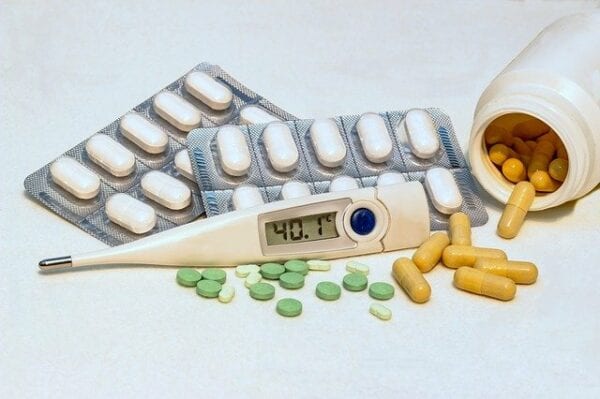A 53-year-old male presents to the emergency department with severe agitation, fever, and symptoms of delirium. The attending provider assesses the patient and gets a urine drug screen. The drug screen was positive for cocaine. In addition to the psychiatric symptoms, tachycardia and fever (101.6 degrees Fahrenheit) are present. Hyperthermia is particularly concerning to the attending provider. While the past medical history is sketchy at best, there was a hand-written medication list in the patient’s pocket. This list was as follows:
- Omeprazole 20 mg for heartburn
- Hydroxyzine 50 mg PRN for anxiety or itching
- Aspirin 81 mg daily
- Amlodipine 5 mg daily
- Diphenhydramine 50 mg for sleep and itching
The attending is reviewing the patient for signs and symptoms of infection, but is there something else that might be considered with regards to the elevated temperature?
While not incredibly common, there are certain medications that can cause hyperthermia.
Maybe you remember the term “mad as a hatter, hot as a hare”? This terminology has been used to describe anticholinergic adverse effects. Hyperthermia is a possible complication from the use of hydroxyzine and/or diphenhydramine which we have in this scenario. In addition to the anticholinergics, it is certainly hard to avoid the cocaine in the drug screen. Stimulants like cocaine are certainly a potential cause of hyperthermia.
So while an infection needs to be considered and clinically assessed, we also should recognize that this situation of hyperthermia has a high likelihood of being drug induced and may resolve as the drug concentrations recede.
In clinical practice, other possible, but rare, medication related causes of hyperthermia could include neuroleptic malignant syndrome due to the use of antipsychotics or serotonin syndrome due to the use of drugs that increase the activity of serotonin such as SSRIs, TCAs, SNRIs, or MAOIs.
What else might you consider in this case?



0 Comments